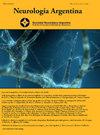Estrategias en el uso de terapias de alta eficacia en esclerosis múltiple: ¿qué cambió en los últimos años?
Q4 Medicine
引用次数: 0
Abstract
Introduction
The management of multiple sclerosis (MS) has evolved significantly with the availability of high-efficacy therapies (HETs). In 2023, Argentine neurologists evaluated treatment strategies, and given new real-world evidence and healthcare system changes, utilization patterns were reanalyzed.
Objective
To assess changes in HET utilization over two years and provide recommendations for different clinical scenarios (disease activity, progression, and adverse events).
Methods
The same 18 specialists from the initial 2023 study were re-surveyed using the original questionnaire. Previous responses were compared, with consensus defined as ≥ 60% agreement. Therapies were evaluated based on efficacy and safety, excluding cost considerations.
Results
Unanimous consensus classified alemtuzumab, natalizumab, ocrelizumab, ofatumumab, and cladribine as HETs, while excluding S1P modulators (83%).
Key findings Increased preference for HETs as first-line treatment, even in patients with favorable prognosis (67% to 23% reduction in low-efficacy therapy use; P < .05). Dominance of anti-CD20 agents (ocrelizumab/ofatumumab) as preferred options for treatment escalation and cladribine failure. Significant decline in alemtuzumab use following other therapy failures (72% to 44%; P < .05). No consensus on post-natalizumab strategies, though anti-CD20 was most selected (56%).
Conclusions
The study demonstrates a paradigm shift toward early HET use in Argentina, driven by clinical evidence and expert experience. Anti-CD20 agents have become the primary strategy, while alemtuzumab's role has diminished. These findings highlight the need for personalized treatment approaches in MS.
多发性硬化症的高效治疗策略:在过去的几年里发生了什么变化?
随着高效疗法(HETs)的出现,多发性硬化症(MS)的治疗已经发生了重大变化。2023年,阿根廷神经病学家评估了治疗策略,并给出了新的现实世界证据和医疗保健系统的变化,重新分析了利用模式。目的评估两年来HET使用的变化,并针对不同的临床情况(疾病活动性、进展和不良事件)提供建议。方法对2023年首次研究中的18名专家使用原始问卷进行重新调查。比较先前的应答,一致定义为≥60%的同意。根据疗效和安全性对治疗进行评估,不考虑成本因素。结果一致认为阿仑单抗、那他珠单抗、奥克雷单抗、ofatumumab和cladribine属于HETs,而不包括S1P调节剂(83%)。即使在预后良好的患者中,HETs作为一线治疗的偏好增加(低疗效治疗的使用减少67%至23%;P & lt;. 05)。抗cd20药物(ocrelizumab/ofatumumab)作为治疗升级和克拉德滨失败的首选方案的优势。其他治疗失败后阿仑单抗使用率显著下降(72%至44%;P & lt;. 05)。对于natalizumab后的策略没有共识,尽管抗cd20被选择最多(56%)。该研究表明,在临床证据和专家经验的推动下,阿根廷向早期使用HET的模式发生了转变。抗cd20药物已成为主要策略,而阿仑单抗的作用已经减弱。这些发现强调了MS个性化治疗方法的必要性。
本文章由计算机程序翻译,如有差异,请以英文原文为准。
求助全文
约1分钟内获得全文
求助全文
来源期刊

Neurologia Argentina
Medicine-Neurology (clinical)
CiteScore
0.50
自引率
0.00%
发文量
34
期刊介绍:
Neurología Argentina es la publicación oficial de la Sociedad Neurológica Argentina. Todos los artículos, publicados en español, son sometidos a un proceso de revisión sobre ciego por pares con la finalidad de ofrecer información original, relevante y de alta calidad que abarca todos los aspectos de la Neurología y la Neurociencia.
 求助内容:
求助内容: 应助结果提醒方式:
应助结果提醒方式:


